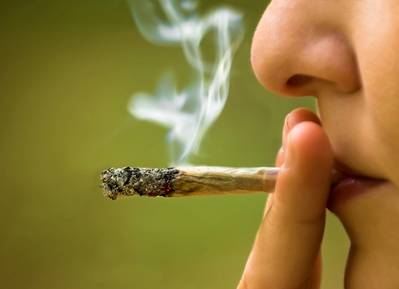USCG: Marijuana for Mariners Still Forbidden
Marijuana use remains incompatible with sea service despite changes in state laws.
Every year, dangerous drug use disrupts or destroys the careers of hundreds of professional mariners, threatening safety throughout the maritime transportation system at the same time. The ravages of addiction and accidental overdose make headlines daily, yet drug use among both the general population and safety-sensitive workforce continues to increase. Much of the rise is attributable to the growing use of marijuana, which has become at least partially legal in 35 states but remains criminal at the federal level under U.S. Code. Along with criminal concerns, testing positive for marijuana or any other dangerous drug triggers serious consequences for mariners, including termination of employment, removal from safety sensitive duties and revocation of merchant mariner credentials. Even in circumstances where the Coast Guard settles marijuana use cases, mariners are still required to complete rehabilitation and show a year or more of negative drug tests before returning to service.
Despite growing state legalization and a cultural shift toward greater acceptance of marijuana use and consumption of marijuana-derived products such as Cannabidiol (CBD) oil, Coast Guard and U.S. Department of Transportation (DOT) chemical testing continues to identify as dangerous drug users individuals with significant amounts of delta-9-tetrahydrocannabinol (THC), the primary psychoactive ingredient in marijuana, metabolized into their systems. While CBD itself will not cause a positive DOT test, CBD products commonly contain psychoactive THC in sufficient amounts to cause a positive drug test. Further, once THC is in a person’s system, it may remain detectible in urine samples for weeks and hair samples for months after its use is discontinued.
Whether a mariner is a cadet carelessly indulging in recreational use of marijuana in a location where it is legal at the state level or a master aboard an oceangoing vessel that used legally-obtained CBD ointment to treat bodily aches and pains, the resulting positive drug test will lead to the same cascade of negative consequences that can be difficult to overcome. Unless and until the drug testing system changes, the best decision a mariner can make is to avoid using marijuana or any products derived from marijuana that may contain THC, such as CBD oil. The threat to maritime transportation and risk of career disaster are both too great to take the chance.
EDITOR'S NOTE: MarineNews magazine, our BPA audited and genre-leading North American brown water and workboat magazine, recently published an in-depth look at the Coast Guard's policies on drug and alcohol policies and outreach. MarineNews readers can find that article by clicking HERE.
EDITOR'S NOTE: MarineNews magazine, our BPA audited and genre-leading North American brown water and workboat magazine, also recently published an informative OP/ED penned by Lee Seham, partner, Seham, Seham, Meltz & Petersen and General Counsel of the non-profit drug testing consortium American Maritime Safety, Inc. Seham weighs in on the coast Guard's recent decision to increase the rate of annual random drug testing on U.S. flag vessels. MarineNews readers can find that article by clicking HERE.
The following link provides additional information on DOT chemical testing regarding recreational use of marijuana:
https://www.transportation.gov/sites/dot.gov/files/docs/odapc-notice-recreational-mj.pdf
The following link provides additional information on DOT chemical testing regarding use of medical marijuana:
https://cms.dot.gov/sites/dot.gov/files/images/ODAPC%20Medical%20Marijuana%20Notice.pdf














